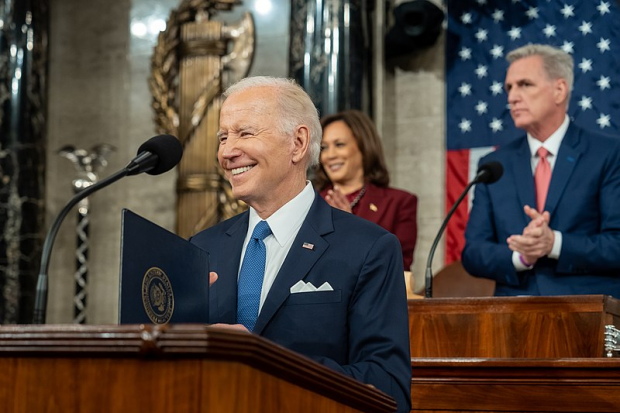In a recent statement and fact sheet, the Biden administration has underscored its ongoing efforts to combat what it refers to as "junk fees" in higher education. These initiatives are part of a broader agenda aimed at reducing the financial burden on students and making college more affordable.

(Photo : WIKIMEDIA COMMONS / The White House)
Eliminating Student Loan Origination Fees
One significant proposal put forth by the Biden administration is the elimination of student loan origination fees. These fees, charged when borrowers first secure their loans, range from 1 percent to 4 percent depending on the type of loan. The president's budget includes provisions to eliminate these fees, a move that has garnered bipartisan support. Republicans have also included similar measures in recent bills aimed at restructuring the student loan system. Advocates have applauded the Biden administration's proposal, emphasizing its potential to alleviate financial strain on students.
During his State of the Union addresses in 2023 and earlier this year, President Biden reiterated his commitment to ending junk fees in higher education. The administration views these fees as burdensome for students and aims to address them as part of its broader efforts to make college more affordable.
Neera Tanden, domestic policy adviser to President Biden, emphasized the significance of these measures in ensuring that students are not unfairly burdened with unnecessary costs. Tanden highlighted the administration's determination to empower students and promote transparency in college expenses.
Additional Measures to Reduce Financial Burden
In addition to addressing student loan origination fees, the Biden administration is taking steps to tackle other forms of junk fees in higher education. One such initiative is aimed at preventing colleges from automatically billing students for textbooks as part of tuition and fees. Furthermore, efforts are underway to refund students for unused meal plan dollars and eliminate certain fees associated with college-sponsored deposit accounts.
While these actions are presented as new initiatives by the administration, negotiations on these proposals were concluded earlier this month by the Education Department. However, any policy changes resulting from these negotiations will not take effect until at least July 1, 2025.
Overall, the Biden administration's focus on combating junk fees reflects its commitment to making higher education more accessible and affordable for all students. By addressing these financial barriers, the administration aims to ensure that students can pursue their academic goals without being hindered by excessive costs.
Reaction and Potential Impact
The Biden administration's efforts to eliminate junk fees in higher education have elicited mixed reactions. While advocates and some lawmakers have praised these measures for their potential to alleviate financial burdens on students, others have raised concerns about the feasibility and impact of these proposals.
Critics argue that while eliminating certain fees may provide temporary relief for students, it could lead to budgetary challenges for colleges and universities. They also question the timing of these initiatives, noting that they come at a time when institutions are already grappling with financial strains due to the COVID-19 pandemic.
Nevertheless, supporters maintain that addressing junk fees is a crucial step towards making higher education more equitable and accessible. They emphasize the importance of ensuring that students are not saddled with unnecessary financial burdens that can impede their academic success.
As the Biden administration continues to push for these reforms, the debate over junk fees in higher education is likely to intensify. Ultimately, the effectiveness of these measures in reducing financial barriers for students will depend on their implementation and enforcement, as well as their broader impact on the higher education landscape.
RELATED ARTICLE: Higher Education Leaders Urge Education Department To Reconsider Proposed Changes to Book and Supply Billing








